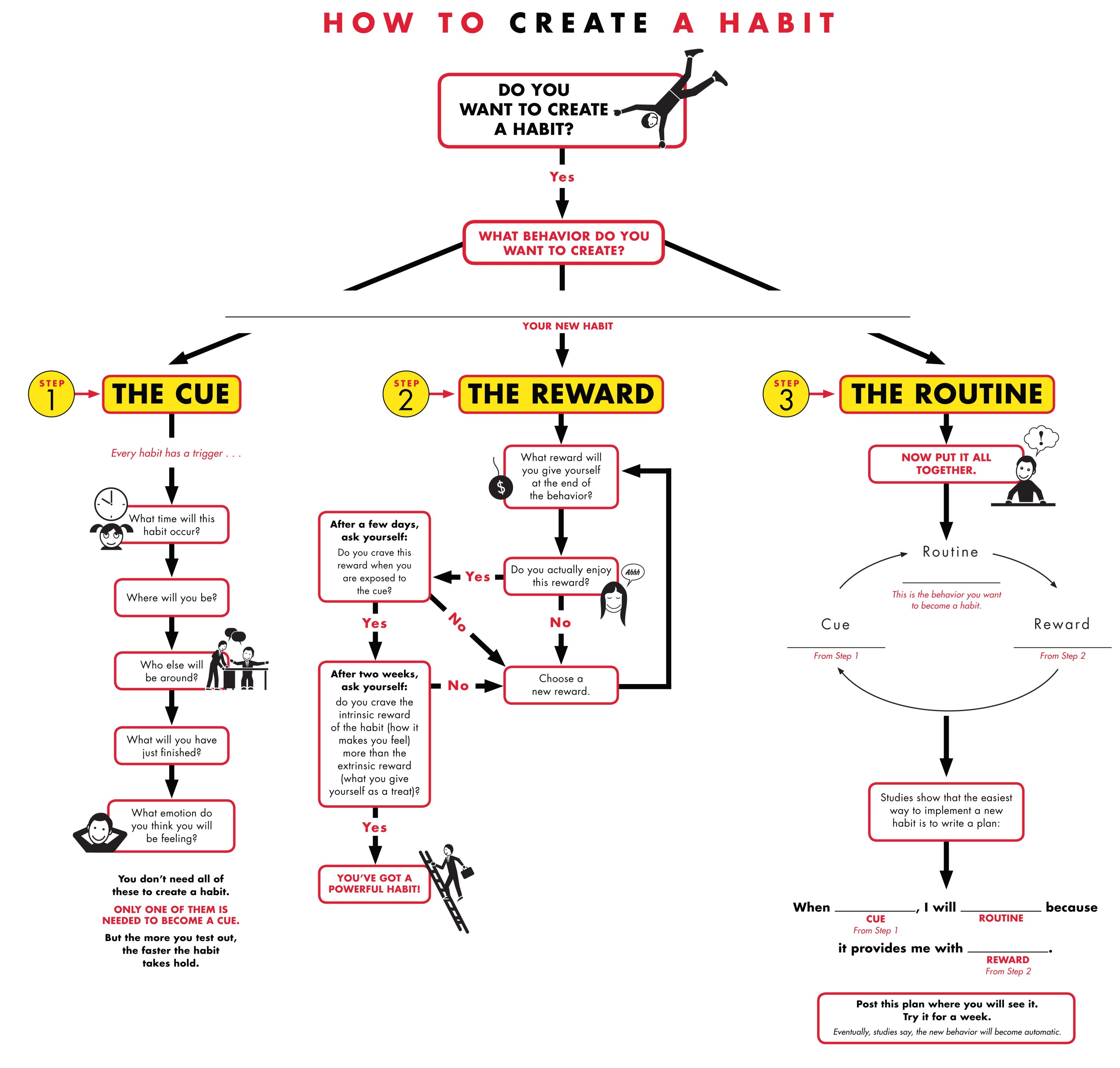Discipline
Discipline is a skill that allows you to maintain your best practices consistently. You have to be disciplined to honor your stops and profit targets, prepare each morning, fill journals, review your trades, stick to your plan, and more. Discipline is a skill, so you can build it. A good way to become more disciplined in life is to create a table of your daily routines and place a checkmark in the cell when you complete a task. This will also show you when you are off track, allowing you to address shortcomings more quickly. However, a hidden pitfall is that discipline can drain your energy levels, especially if your training process is poorly structured, making it difficult to maintain the schedule.
Trading requires many routines you must follow. So, how can you maintain your best practices consistently without draining your energy? Ideally, you should transform your best practices into habits. Imagine you review your trades or habitually exit a losing trade, and it takes as little mental energy as washing your hands before lunch. That would be great, but how can you do that? The answer comes from the book The Power of Habit by Pulitzer Prize winner Charles Duhigg. Most people use that book to get rid of bad habits, but we’re going to use it to form new ones! Studies show that every habit has a cue, a routine, and an instant reward. Each component is essential. For example, Pepsodent added a tingling menthol/eucalyptus component to toothpaste to create an instant reward, which motivated people to brush their teeth regularly. To form new habits, reward yourself after every routine or action. For stops, the process is clear: if the price drops below your stop level (cue), you exit (routine), and then reward yourself in some way (instant reward). For filling your trade journal, you can set an alarm for 1:00 p.m. or use an existing habit as a cue. For instance, if you always drink a glass of water one hour before lunch, use that as your cue to fill journal and then reward yourself.
To successfully form habits, start slow. If a routine takes too much energy, your subconscious mind will not associate it with the instant reward. For example, many gym newcomers fail because they overdo their workouts, associating the gym with tiredness and hard work instead of the uplifting feeling of a pump. If they spent no more than 45 minutes at the gym for the first few months, they would retain positive feelings and develop a willingness to return. Similarly, in trading, focus on the required minimum until your habits are established. Once you have solidified those habits, you can gradually increase the workload. Even the minimum can take a significant amount of time, especially for novice traders.
gl hf

